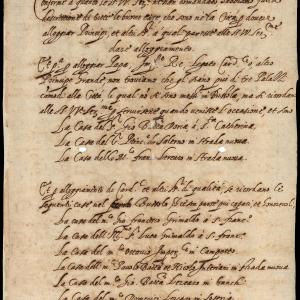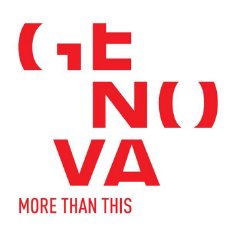The State Archive of Genoa also preserves the notarial archives, which still represent the most celebrated collection, universally known for its antiquity and the quantity of medieval minute (imbreviature): the 12th century registers (cartularies), unique in the world; the more than 150 papers of the thirteenth century compared to the approximately 50 registers kept in the rest of Italy and Europe; the almost 450 units of the fourteenth century and the 1033 fifteenth century files.
The deeds stipulated by notaries testify to every aspect of the social, political, cultural and economic life of the Republic of Genoa and the Genoese settlements in overseas and constitute an unparalleled historical source for the breadth of the geographical horizon, from England to Flanders, from Spain to the Maghreb, from the Levant to the Black Sea.
The Archive of the “Casa di San Giorgio” is also of great importance, the institution born in 1407 from the reorganization of the Genoese public debt, and which up to 1805 also carried out a public banking activity of deposit and transfer, to which it added the concession of short-term credits in favor of the State and tax contractors, taking over the government in the overseas colonies, on the island of Corsica and in numerous mainland districts. These archives represent, despite the inevitable gaps caused by time, a unique heritage for the study of political events, commercial activity and the evolution of society throughout the known world in the Middle Ages and in the modern age. To these are added the cartographic documentation and that from the offices and state bodies of the 19th and 20th centuries.





